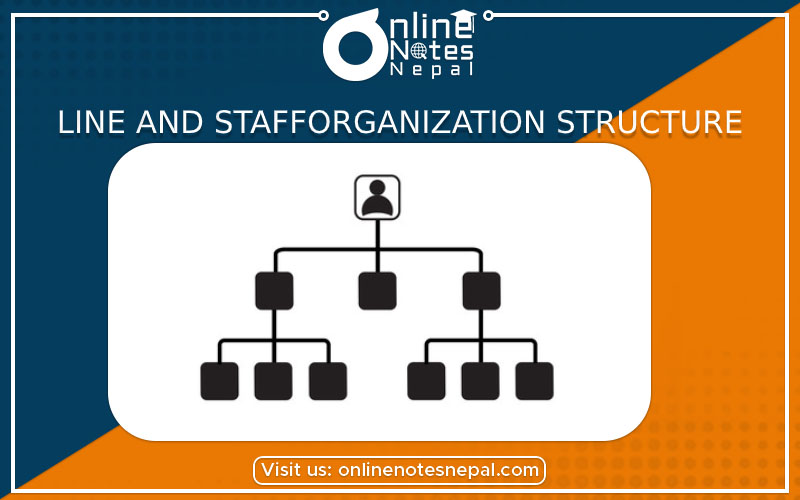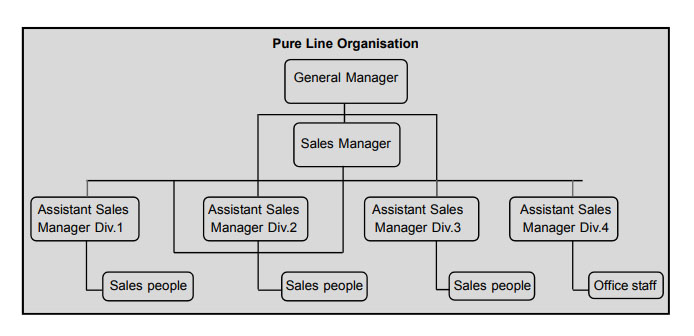Published by: sadikshya
Published date: 01 Jun 2021

Line organization structure is one of the simplest types of organizational structures. Its authority flows from top to bottom. Unlike other structures, specialized and supportive services do not take place in these organizations. The chain of command and each department head has control over their departments.

1. Simplicity
This system is very simple and can operate very easily. It explains the tasks of every worker in an organization. Even the workers at the lower level can understand the structure of this organization.
2. Responsibility is fixed
In this form of organization, responsibilities are fixed and defined. Every person is crystal clear to whom he is answerable and who are accountable to him. In this type of organization shifting of responsibility is not possible because responsibilities are fixed.
3. Flexibility
This system is flexible in the sense that it is subject to quick adjustments to suit the changing conditions. Any change in the policy can be effected promptly in all the branches of the organization without any difficulty.
4. Unity of Command
Since the workers are responsible only to one superior, unity of command is made possible.
5. Quick Decision
Single authority unified control and fixed responsibility to help in a quick decision.
1. Overloading
The executive is overloaded at each level of the organization. There are several things he must manage independently. Here his level of efficiency is not the same that is why most of the time the organization activities suffer due to overloading.
2. Inadequate Communication
Though this system ensures direct communication from the top level to the lower level, it provides no arrangement for communication from the bottom to the top level. This may lead to wrong adjustments or wrong decision-making on the part of the executives.
3. Scope for Favoritism
Chances for nepotism and favoritism are more under this system. Since one man controls the whole show, the subordinates have to dance according to his tune.
4. Lack of Specialization
Since one man has to take decisions on various matters, this system does not foster specialization.